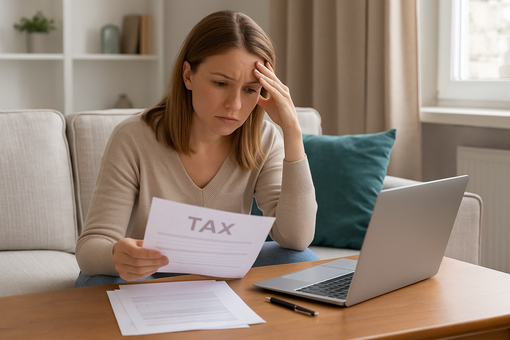What do i need to file my taxes? Your ultimate tax documents checklist
Tax season can feel a bit like preparing for a surprise pop quiz – except this quiz involves your entire financial life, and there’s a deadline.
The million-dollar question (or maybe just a few hundred or thousand): What documents do I need for taxes?
Getting organized upfront means fewer headaches later, and maybe even a bigger refund. Here’s your definitive tax documents checklist, expertly curated and easy to follow.
Why having the right documents matters
Before diving into the specifics, let’s get one thing straight: tax documents aren’t just boring paperwork. They are the backbone of your return. Without them, you’re just guessing – and the IRS does not appreciate guesswork.
Having the right documents means:
- Accuracy: You report exactly what you earned and paid.
- Compliance: You avoid penalties and audits.
- Maximized deductions: You claim every credit and deduction you deserve.
- Faster filing: Less time hunting for papers means more time for, well, anything else.
Imagine showing up to a cooking contest without ingredients – that’s filing taxes without your documents.
Personal info and identification: start here
Every tax return begins with your identity. The IRS wants to know exactly who you are – and who you’re filing for.
Gather these essentials:
- Social Security numbers (SSNs) or ITINs for yourself, spouse, and dependents. No SSN? An ITIN is your fallback.
- Prior year’s tax return – handy for verifying info and your Adjusted Gross Income (AGI).
- Identity Protection PIN (IP PIN), if you have one from the IRS. (Bonus points for extra security.)
- Bank account and routing numbers for direct deposit or payment. No more waiting weeks for paper checks.
- Current address and contact info, especially if you’ve moved or changed names. Update the SSA if needed.
Income documents: the heart of your tax return
If money flowed into your pockets during the year, you need the paperwork to back it up. Income is the cornerstone of your tax calculation.
Common income documents include:
- Form W-2: Your employer’s report of your wages and taxes withheld. Multiple jobs? Collect all W-2s.
-
Forms 1099: These come in many flavors:
- 1099-NEC: For freelance or contract work.
- 1099-K: Payment card or online platform transactions (think Uber, Etsy).
- 1099-INT: Interest income from banks or investments.
- 1099-DIV: Dividends from stocks.
- 1099-R: Distributions from retirement accounts.
- 1099-G: Unemployment benefits or state tax refunds.
- Other income: Gambling winnings, jury duty pay, rental income, alimony received, and hobby earnings – keep records and receipts for these too.
Deductions and credits documents: your refund boosters
Deductions and credits reduce your taxable income and tax bill, sometimes significantly. Having the right documents to prove these can make a big difference.
Collect these:
- Childcare expenses: Receipts plus the provider’s tax ID or SSN.
- Education: Form 1098-T for tuition and Form 1098-E for student loan interest.
- Mortgage and property tax documents: Form 1098 and property tax statements.
- Charitable donations: Receipts or bank statements showing contributions to qualified organizations.
- Medical expenses: If you itemize, track your out-of-pocket healthcare costs.
- Retirement contributions: Records of IRA or 401(k) contributions.
- Health Savings Account (HSA) info: Forms 1099-SA and 5498-SA.
- Energy credits: Receipts for solar panels, energy-efficient windows, and other qualifying home improvements.
Remember:
"If you didn’t keep the receipt, the IRS might not believe you." – Tax Pro Wisdom 101
Self-employment and side hustle papers: extra hustle, extra hustle docs
Side gigs, freelance work, and small businesses come with extra paperwork – but also extra opportunities for deductions.
Don’t forget these:
- 1099-NEC or 1099-K forms, plus any income not reported on these forms.
- Business expense receipts: Office supplies, software, phone bills, advertising, and more.
- Mileage logs: Driving for work? Track those miles (the IRS has standard rates).
- Estimated tax payments: Proof of quarterly tax payments made.
- Bank statements and payment app records: Show your cash flow clearly.
If you’re a gig economy pro or digital nomad, organization here is your secret weapon.
Organizing your documents like a pro
Let’s face it, taxes aren’t fun – but they become less painful with a little prep.
The top common advice we give our clients is simple: Get organized before tax season hits.
Here’s how to organize your tax documents:
- Create folders or binders: Separate by category – income, deductions, personal info.
- Use digital tools: Scan and save documents in cloud storage with clear labels.
- Keep a running checklist: Add new documents as you receive them throughout the year.
- Keep copies: Always keep a copy of what you submit to the IRS.
- Set reminders: Mark important tax dates on your calendar – deadlines wait for no one.
A little organization goes a long way toward a stress-free tax filing experience.
Final tips and advice
- Don’t DIY blind: Tax software is great, but when your financial life gets complicated (hello, expats!), a human tax expert is your best friend.
- Watch deadlines: Filing late means penalties and interest.
- Ask questions: Tax pros (CPAs and EAs) love to help – don’t hesitate to reach out.
- Plan ahead: Keep your documents year-round, so tax season is just a matter of assembling, not hunting.
Remember, taxes aren’t just about forms; they’re about your financial story. The better the documents, the clearer that story becomes – and the better you can navigate your tax journey.
Bottom line
So, what documents do you need for taxes?
The short answer: all the ones that show what you earned, paid, and spent. The longer answer: a detailed tax documents checklist that covers personal ID, income records, deductions, and self-employment papers, all neatly organized and ready to go.
Preparing your taxes is less daunting when you know exactly what to gather – and when you have an expert guiding you.
Need help? With over 20 years, 50,000+ returns filed, and a 90% client retention rate, Taxes for Expats is here to make your tax season smooth, human, and even maybe a little enjoyable (we’re pros at that).
Drowning in tax details?
Get your free tax advisory
FAQ
It’s best to gather all your documents before filing to avoid errors or missing out on deductions. If you’re missing something, try to get a copy from the issuer (employer, bank, etc.) or request a transcript from the IRS. Filing without full documents can lead to delays or audits.
You should wait until you receive your W-2, as it reports your official wages and taxes withheld. If it’s late, contact your employer. If you still don’t get it, you can use Form 4852 as a substitute but be prepared to explain and provide estimates.
Yes! All income is taxable, whether from a traditional job, freelance gigs, or selling goods online. You’ll likely receive a 1099-NEC or 1099-K, but even if you don’t, you must report the income.
In addition to standard tax documents, expats should gather records of foreign income, foreign bank accounts (FBAR), and any foreign tax payments to claim credits or exclusions. Professional help is highly recommended due to complex international tax rules.
The IRS recommends keeping records for at least three years, but if you file claims for loss from worthless securities or bad debt deduction, keep them for seven years. For expats, keeping records longer can be beneficial given the complexity.
Yes, digital copies are perfectly acceptable. Just make sure they are clear, legible, and securely stored. Many tax professionals prefer digital documents for ease of access and organization.



